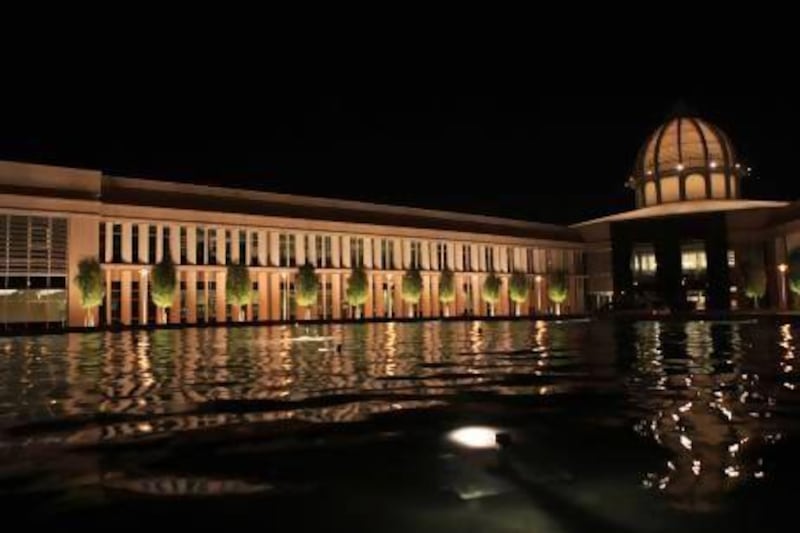DUBAI // Majed Al Khemeiri is a star product of the state education system.
The 24-year-old Emirati is completing a master's in international law and diplomacy and a second bachelor's degree in geography and planning at the Abu Dhabi campus of Paris Sorbonne University.
He has seen first-hand the improvements to the education scene.
"You have to give credit to the Government for bringing about so much change in such a short time," said Mr Al Khemeiri, who intends to go on to complete a doctorate in strategic planning.
"I do not need to travel abroad to study because all the options are available here now. I wouldn't have been saying this five years ago."
An education system on par with the best international standards is vital for grooming young Emiratis such as Mr Al Khemeiri to fill vital roles in every sector of the economy.
Over the past 10 years, the Government has sought to provide this by constantly expanding options and improving standards.
"We are working to provide a distinguished international education for our children," said Dr Mugheer Al Khaili, director general of the Abu Dhabi Education Council. "Establishing branches of many international universities in the UAE is enriching the field and opening windows of opportunity for Emiratis.
"At the same time, we must continue to develop our local universities so they can be on the same level."
In the capital, the push to improve education began in earnest in 2005 with the formation of the Abu Dhabi Education Council.
The authority, headed by Sheikh Mohammed Bin Zayed, Crown Prince of Abu Dhabi and Deputy Supreme Commander of the Armed Forces, introduced radical changes to the state school system by creating a bilingual education model and hiring licensed teachers from abroad to work alongside local instructors.
Similar projects were undertaken by the Ministry of Education in Dubai and the Northern Emirates, the most notable being the Madares Al Ghad schools that teach science and maths in English.
The moves show the Government's commitment to improving English language skills, said Natasha Ridge, executive director of the Sheikh Saud Bin Saqr Al Qasimi Foundation for Policy Research.
"Most recently in Ras Al Khaimah, the Ministry of Education invested considerable funds in training English teachers over the last year, which was found to have improved teachers' levels of English significantly," Ms Ridge said.
"I believe it is helping the next generation of Emiratis to be part of the global economy."
Higher education received a shot in the arm when the campuses of world-renowned universities, such as Paris Sorbonne University and New York University, were opened in the capital.
Paris Sorbonne was set up in Abu Dhabi in 2006 through a collaboration with the Government with the aim of getting Emiratis passionate about social sciences, arts and humanities, and promote courses in French.
An NYU campus followed in 2010, becoming the first liberal arts and science campus in the Middle East to be operated by a major American research university.
Similar growth has been backed by authorities in Dubai and the Northern Emirates. Dubai International Academic City has attracted branches of more than 21 international campuses since 2007.
Meanwhile, about Dh3.9 billion of the federal budget this year was allotted to raising standards in federal universities by improving facilities, increasing research and promoting programmes in non-oil sectors, including aerospace, semiconductors and nuclear energy.
Among those looking to improve is UAE University, the first federal university to open here in 1976.
"UAEU has rapidly developed into a research-intensive university that focuses on addressing problems of national importance," said Dr Mohamed Yousif Baniya, the provost of the university, with 48,383 enrolled students.
"Like the country, UAEU is international in its perspectives and connections and national in its focus.
"We continue to expand collaboration between scientific groups and bring researchers together to form the foundation for specialised research centres focusing on issues of national importance, such as educational technology, water, energy and environment, and public policy and leadership."
Ms Ridge believes the next steps forward need to be in the areas of special needs and vocational education.
"I think the Applied Technology High Schools have been a really positive effort designed to re-engage boys," she said.
"If those schools stay on a true vocational path and keep it practical, they have the potential to really help boys enjoy their education."
wissa@thenational.ae






